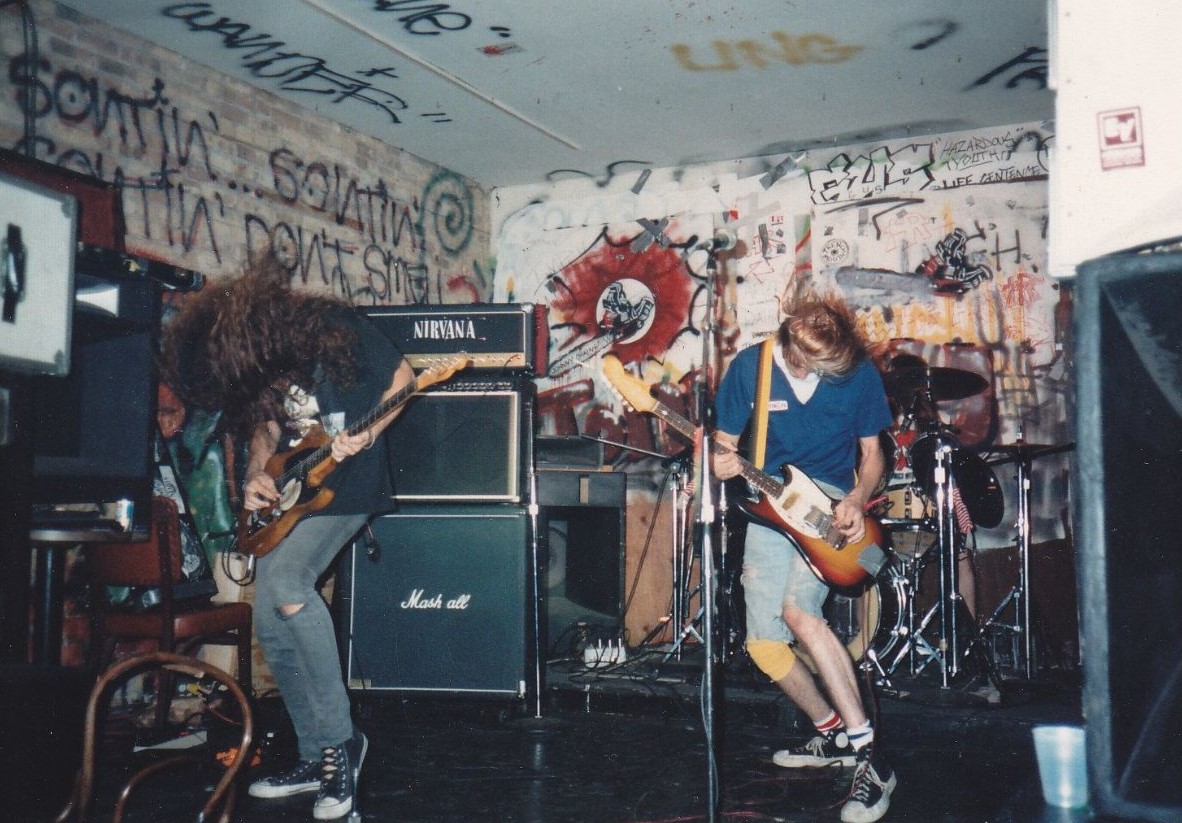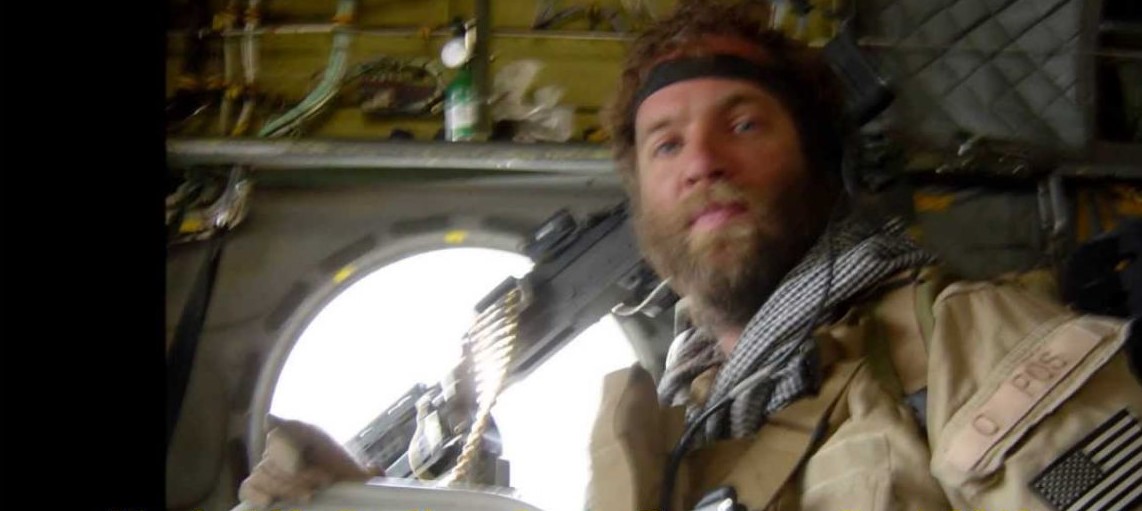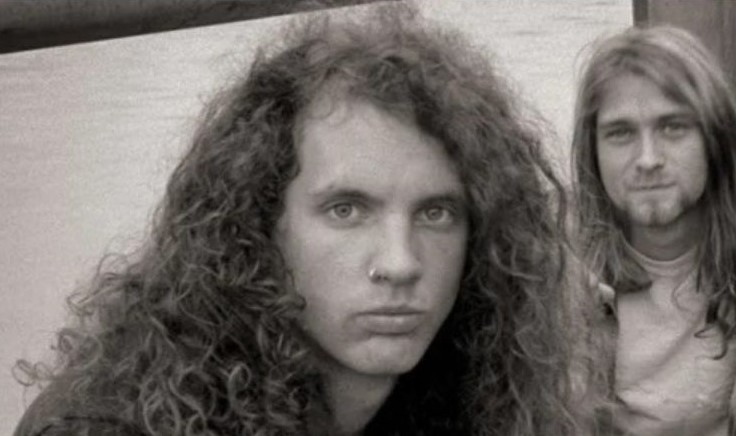Jason Mark Everman’s journey from a musician deeply involved in the Seattle grunge scene to a highly respected Green Beret is both extraordinary and inspiring. His arc is a testament to the unpredictable twists and turns that define the human experience and the profound capacity we all have for reinvention.
Early Life and Entry into Music
Born in 1967 in Kodiak, Alaska, Everman’s early life was far removed from the world of rock music that would later define his early adulthood. Growing up in a remote setting, he was naturally drawn to the escape that music provided.
And the remote location was not all Everman had to escape from. To quote his half-sister: “My mother was extremely depressed, an artistic genius who was also a pill-popping alcoholic. Jason and I learned to walk on eggshells and really learned to take care of ourselves.” Jason found himself prone to acting out. Once, he and a friend blew up a toilet with an M-80. At this point, his grandmother had had enough of the shenanigans and put young Jason in therapy.
As fate would have it, his therapist was a guitarist and kept a couple of guitars in his office. Jason picked one up and decided to learn how to play. In time, he and his therapist began to play together. It was a way for them to bond and to get the young man to open up and deal with his issues. In high school, Everman would play with a number of bands. One of Everman’s early local bands was Stonecrow, which featured future Nirvana drummer Chad Channing on the drums.
This passion for music eventually led him to Seattle, Washington. During the late 1980s and early 1990s, Seattle was a melting pot for what would become known as the grunge movement, and Everman, with his long hair and flannel shirts, found himself right in the thick of it.
Time with Nirvana and Soundgarden
Everman’s most notable contributions to music came through his association with Nirvana and Soundgarden, two bands that would go on to define an era. In 1989, he joined Nirvana, a band on the cusp of breaking into the mainstream. Although he was credited as a guitarist on “Bleach,” Nirvana’s debut album, his role was more financial than musical—he had lent the band the money to record the album. Kurt Cobain would later tell the story of how he gave Everman the credit as a way of thanking him for paying the studio the $606 fee. When Bleach was remastered in 2009, Everman was no longer given credit as a musician, but his photo remained on the front cover.

His time with Nirvana was brief, ending in 1989 due to personal and creative differences. The rumor was that Everman was too moody for the grunge rock scene.
Not long after being booted, Everman joined Soundgarden, a band that, like Nirvana, was instrumental in shaping the sound of grunge music. His time with Soundgarden saw him contributing to the band’s early work and helping to cement their place in the rock genre. However, his journey with Soundgarden was also short-lived, and by the early 1990s, Everman found himself at a crossroads, searching for a new purpose beyond the music world.
Military Career and Becoming a Green Beret
In a move that surprised many who knew him from his music days, Everman enlisted in the U.S. Army in 1994. His decision to join the military was driven by a strong desire for structure and a new challenge, as well as a way to escape the lingering disenchantment with the music industry. Everman quickly excelled in the military, going through ranger training and eventually being assigned to Delta Company of 2nd Ranger Battalion. Up until the time of Kurt Cobain’s suicide, Everman had been able to keep his rock and roll past a secret. Somehow, after that tragic event, the word leaked out, and everyone began calling him “rock star.” His four-year enlistment was up in 1998, and he took some time off to venture to Nepal, hang out with monks, and generally “find himself.”
When he returned to Washington State, Everman ended up going through what he described as the roughest time of his life. His epic adventures were over, and he was just another guy in his 20s looking for work. He did a stint as a bicycle messenger, and his longtime relationship fell apart; about that same time, his alcoholic mother died.
Down, but not out, Everman knew he had to Ranger the Frick Up (RTFU), so he went to college, earned an associate’s degree, and rejoined the Army with the goal of being a member of Special Forces. During the long weekend off between Robin Sage and language school, he flew to New York City, where he toured the World Trade Center. Not long after that, he watched on a TV in the student commons as a plane flew into the towers. He immediately knew we were at war, and his life was forever changed.
He eventually became an 18B (Special Forces Weapons Sergeant) and was assigned to 3rd Group and deployed to Iraq and, later, Afghanistan.

His transition from musician to soldier is a remarkable example of personal transformation, showcasing his versatility and strength of character.
Life After the Military
Following his service in 2006, Everman continued to seek new challenges and opportunities for growth. He attended Columbia University, where he earned a bachelor’s degree in philosophy. Later, he earned his master’s degree from Norwich University. These academic pursuits further illustrate Everman’s wide-ranging interests and his continuous quest for knowledge and understanding.
Jason Mark Everman’s life story is a compelling tale of transformation, demonstrating that it is never too late to redefine oneself and pursue new paths. From the stages of Seattle’s grunge scene to the battlefields of the Middle East and the halls of academia, Everman’s journey is a profound reminder of life’s unpredictable and multifaceted nature.










COMMENTS